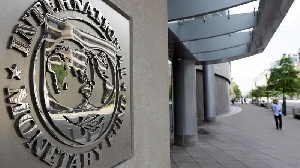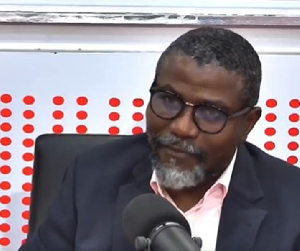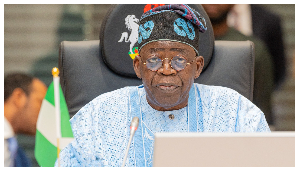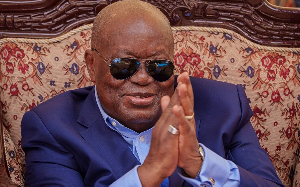The governing National Democratic Congress (NDC) has refuted allegations by the opposition New Patriotic Party (NPP) that it engaged the International Monetary Fund (IMF) for a “bailout”.
According to Transport Minister Fiifi Kwetey, who addressed a press conference dubbed ‘Setting the Records Straight’ in Accra on Thursday September 22, the NDC needed to bring some “economic illumination to our friends in the NPP because they have been getting quite a lot of things wrong”.
He was of the view that the “NPP has been making some incompetent economic claims”, adding: “We have repeatedly heard the NPP refer to the IMF programme with Ghana as a bailout.”
The Member of Parliament (MP) for Ketu South underscored: “It is quite baffling listening to the so-called economic gurus of the NPP continue to use the [expression] ‘IMF Bailout’.”
Ghana signed up for the programme in April 2015 after fiscal challenges triggered an over-expenditure of 12 per cent.
The country received an initial $144.8 million in April 2015 and a second tranche of $115 million in August. The government is expecting a third tranche of $116million, being part of the $918million credit facility.
Even though Mr Kwetey was positive about the outcome of the programme, Mr Kusi Boafo, an economics lecturer at the Kumasi Polytechnic, believed the extended credit facility was not enough to make Ghana’s economy recover from the challenges it presently faces.
As a result of the deal, recruitment into the public sector has been restricted while water and electricity prices went up by 70 per cent in December 2015, following the withdrawal of several subsidies as well as the introduction of fresh taxes, including the Energy Sector Levy, which was introduced on petroleum products as the state deregulated pricing of the commodity.
This has translated into rising cost of living as Ghanaians now have to pay more for power, fuel, water, transportation, food, and other goods and services, with the scale of salary increases failing to match corresponding expenses. Some businesses, too, have been hit hard by the faltering power situation, as they have been forced to downsize or close down in some cases.
“These are austere measures every Ghanaian is going through; we are making sacrifices so every Ghanaian will pay a price for our going to the IMF,” Mr Boafo told Accra News Thursday August 11, adding that people’s level of suffering in the country was “your share of the contribution to the economic mess”.
Notwithstanding the sacrifices Ghanaians are making, Mr Boafo insisted a longer term agreement with the IMF would have been necessary to roll back the economic difficulties and “very deep” structural difficulties confronting the country such as being “import-driven” with a long history of “budget deficits” coupled with election-year fiscal “recklessness”, weaker infrastructure, “huge” unemployment and energy challenges, which have all conspired to impact the agricultural and manufacturing sector negatively.
“So Ghana’s problems are chronic, we cannot resolve them within the three years the IMF gave us. The IMF should have taken its time and allowed for probably five years,” he assessed.
In his view, the IMF was “frontloading” or abbreviating policies through the three-year programme, which would have aided a turnaround in the country’s economy by, say, 2019.
Despite the grim situation, the lecturer advised the government not to heed calls to abrogate the IMF deal, saying that would not bode well for the country’s policy credibility, with the likelihood of “astronomical” debt servicing, reduced investor confidence, cuts in foreign aid and reduction in budgetary assistance.
He advised: “What is necessary is for the government to tell Ghanaians: ‘This is what has happened’ and that we (citizens) would have to begin to apply prudence and the government itself would have to demonstrate commitment to follow it.”
Business News of Friday, 23 September 2016
Source: classfmonline.com













